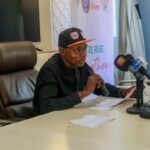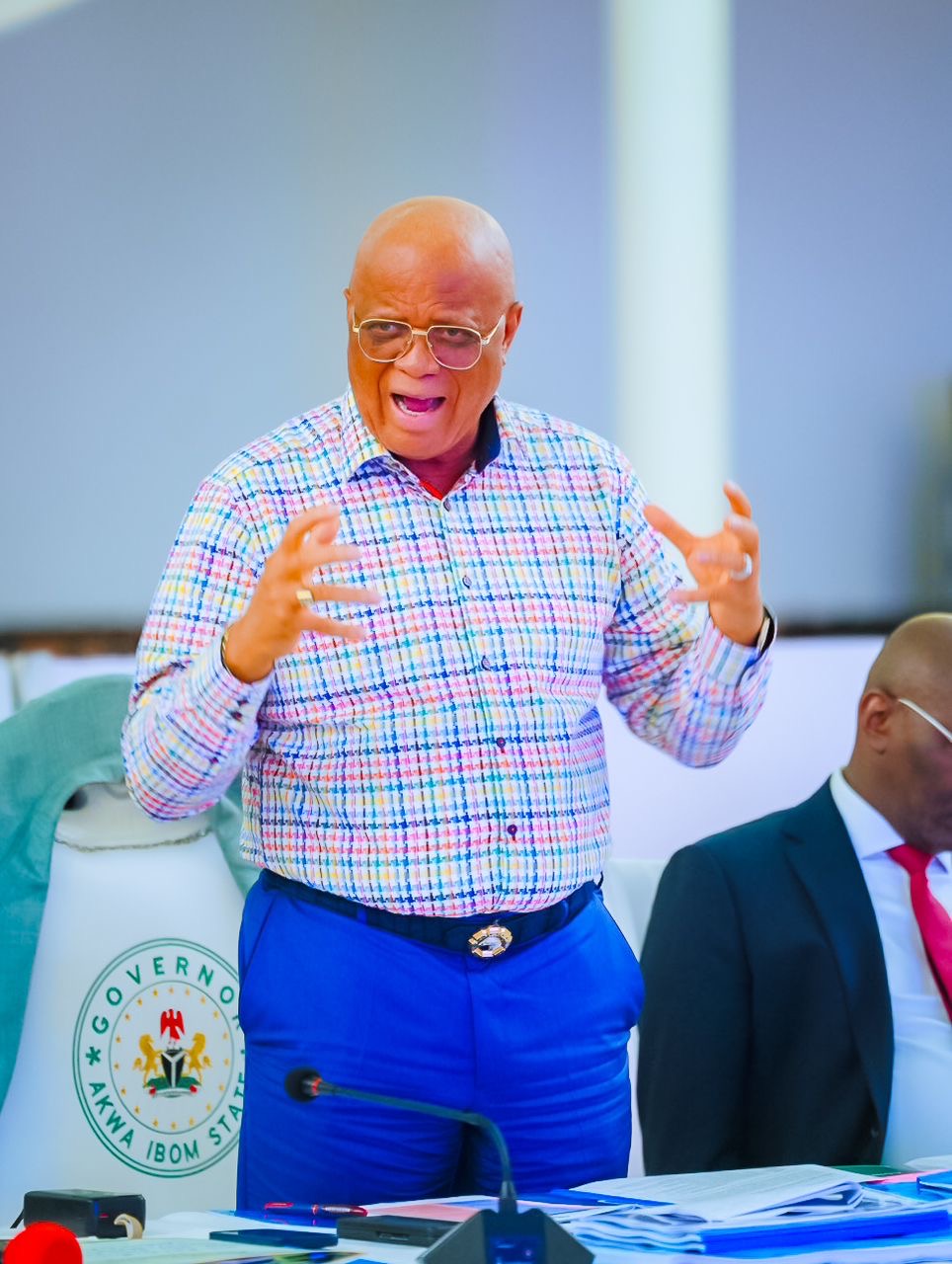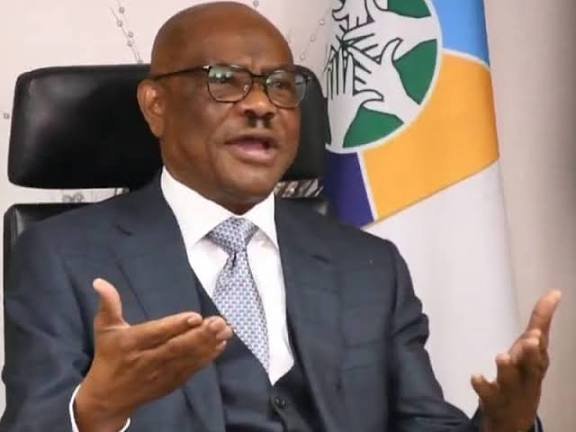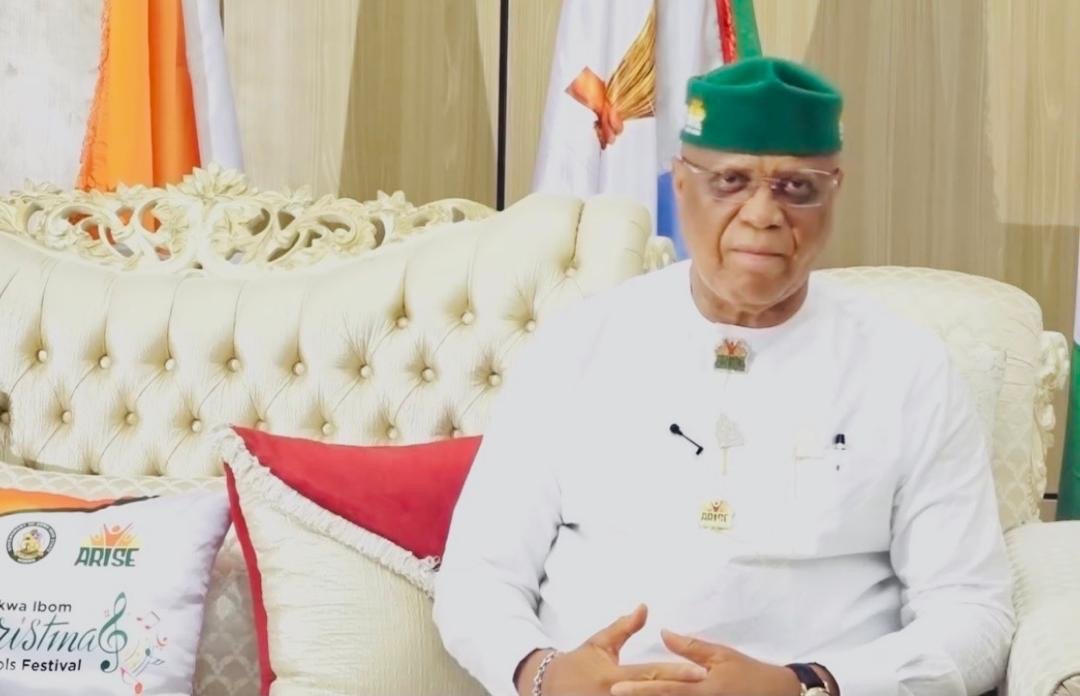Gov. Umo Eno at the meeting .
By Ekemini James
Governor Umo Eno has a routine monthly review of project delivery meetings where he gathers his team to assess the progress of several key initiatives and projects in his administration. It is his style, and every leader has one.
His approach reflects a disciplined mindset shaped by years in the corporate world, where tracking performance is not optional but essential.
This monthly ritual is more than administrative; it is a leadership philosophy rooted in accountability, where every milestone is measured, every delay interrogated, and every official reminded that governance is a duty, not a drama.
The just concluded two days Project Delivery and Performance Review meeting at the Banquet Hall, Government House, Uyo, might appear like a bureaucratic routine to a casual observer, but behind the curtain of technicalities lies a message.
Governor Eno, standing like a preacher of accountability in his own cathedral of governance, called his Commissioners and delivery advisors not merely to a meeting, but to a mission steeped in synergy, seriousness, and service.
In the cadence of a man who knows both the boardroom and the pulpit, the Governor did not mince words. “You don’t get what you expect, but what you inspect,” he intoned, a corporate axiom turned governing creed. It was a subtle rebuke to the culture of assumption and a call to the practice of follow through.
Listening to the Governor, one can see that he has the kind of ideological independence that separates a career politician from a purposeful reformer and Akwa Ibom, blessed as it is with natural resources and human capital, deserves no less.
Governor Umo Eno is quietly building a culture of introspection and institutional memory. He is schooling his team in the ethics of performance, reminding them that development is not in the announcement but in the accomplishment. And perhaps that is where the heart of this matter lies.
For in a country too often afflicted by underperformance wrapped in rhetoric, Akwa Ibom is being governed by a leader who inspects rather than expects, who invites oversight rather than avoids it, and who leads not from behind a curtain but from the front lines of development.
There is subtle strength in knowing when to pause. In a world obsessed with constant motion, it takes a rare kind of leader to say, “Let us step back, not because we’re lost, but because we’re committed to getting it right.” That was the spirit behind the just concluded Project Delivery Meeting convened by Governor Umo Eno; a moment not of retreat in the literal sense, but of recalibration.
For a leader whose ARISE Agenda continues to gain traction across sectors, it would have been easy to press forward without stopping. After all, projects are ongoing, policies are unfolding, and the applause is growing louder. But in Pastor Eno’s view, success without reflection is simply noise.
The scripture says in Lamentations 3:40, “Let us examine our ways and test them, and let us return to the Lord.” In governance, as in life, honest self-examination is the first step towards sustainable progress.
The retreat was not merely a gathering of government officials; it was a gathering of intentions. It was an inner room moment, where those entrusted with the future of over seven million people came face to face with their mission, their responsibilities, and their blind spots.
It is easy to assume that governance is about building roads, launching programmes, and cutting ribbons. But behind every visible achievement lies an invisible engine: vision alignment, policy cohesion, and team synergy. That’s what the delivery meeting reinforced.
Akwa Ibom is in capable hands, not because everything is perfect, but because the one steering the ship knows when to pause, when to listen, and when to power forward with renewed direction.
The Bible says in Proverbs 24:3, “By wisdom a house is built, and through understanding it is established.” The house called Akwa Ibom is being built steadily, deliberately, and wisely.
James is a Media Aide to the Governor of Akwa Ibom State, he writes from Uyo.










